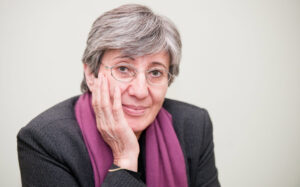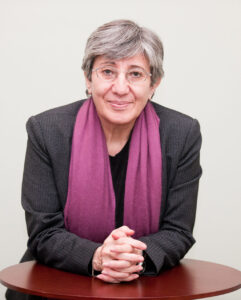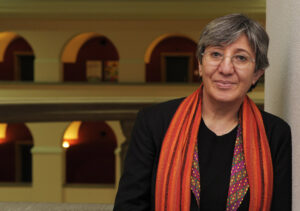Sima Samar
Credentials
Humanitarian Cause
Human Rights, Documenting and Reporting Human Rights Violations, Human Rights Advocacy, Minorities’ Rights, Women’s Rights,
Impact Location
Afghanistan, Pakistan
Occupation
Activist / Founder of Shuhada Organization
Photo Gallery
About
Dr. Sima Samar is an internationally renowned Afghan human rights activist, social worker, and medical doctor whose work focuses on advancing the rights of women and marginalized communities. She is best known as the former head of the Afghanistan Independent Human Rights Commission (AIHRC), where she led initiatives in human rights education, women’s rights, and accountability for human rights abuses across Afghanistan. Through decades of humanitarian work, Dr. Samar has faced significant personal risk, becoming a symbol of resilience and advocacy for justice in Afghanistan. She has lived in exile in the United States since the Taliban retook power in 2021.
Dr. Samar was born on February 3, 1957, in Jaghori, Ghazni, Afghanistan, and rose to prominence as one of the few women to obtain a medical degree from Kabul University in 1982. Her early years were marked by personal challenges, which made her acutely aware of gender inequalities in Afghan society. Despite these limitations, she pursued higher education, agreeing to an arranged marriage as a condition to attend university.
While still in medical school, she became a mother, balancing her new family responsibilities with her academic pursuits. However, her life took a drastic turn when her husband disappeared after being arrested by the pro-Russian government. This tragic event intensified her resolve, and with her young son, she sought refuge in Pakistan, where she continued to use her medical skills to help those in need.
In Pakistan, Dr. Samar witnessed the dire conditions Afghan refugees, particularly women and children, were enduring. Moved by this experience, she founded the Shuhada Organization in 1989 to provide essential services such as healthcare, education, and vocational training. Initially based in Quetta, Pakistan, the organization grew to operate numerous clinics, hospitals, and schools in both Pakistan and Afghanistan, including remote areas with limited access to such facilities. Shuhada’s health services focused on maternal care, preventive health education, and empowering women by training female healthcare providers.
“In a country like Afghanistan, the whole conflict is conducted by men. Women are left behind, washing and cooking.”
Following the fall of the Taliban in 2001, Dr. Samar returned to Afghanistan to serve in the country’s Interim Administration as the first-ever Minister of Women’s Affairs. In this role, she was instrumental in advocating for women’s rights, fighting for policy changes, and challenging discriminatory practices. Her work helped reintegrate women into Afghan government roles, ensured their representation in local councils, and secured rights for women returning to the workforce post-maternity. Despite her impactful contributions, Dr. Samar faced intense opposition from conservative factions, ultimately leading her to resign due to death threats.
In 2002, Dr. Samar was appointed the first Chairperson of the Afghanistan Independent Human Rights Commission, a role she held until 2019. The AIHRC became a pioneering institution in monitoring and reporting human rights abuses, focusing on issues like civilian casualties, impunity for war crimes, and the enforcement of women’s rights. Under Dr. Samar’s leadership, the AIHRC advocated for the establishment of a legal framework to protect vulnerable groups, and Dr. Samar herself called for accountability for past and present rights violations. Her commitment to exposing abuses often put her life at risk, making her one of the most courageous voices in the fight against impunity in Afghanistan.
“In my view, the root cause of the conflicts in the country—and then later the behavior of the people in power—has from the start been the lack of education.”
Beyond her work in Afghanistan, Dr. Samar’s influence has extended to the international stage. She served as the United Nations Special Rapporteur on Human Rights in Sudan from 2005 to 2009, where she documented and reported on rights abuses in conflict zones. In 2019, she was appointed to the United Nations Secretary-General’s High-Level Panel on Internal Displacement and later joined the High-Level Advisory Board on Mediation. Through these roles, Dr. Samar has contributed to global efforts in conflict mediation, refugee rights, and internal displacement policies, drawing from her extensive experience with Afghanistan’s challenges to provide insight and recommendations on pressing humanitarian issues.
An advocate for education, Dr. Samar founded the Gawharshad Institute of Higher Education in Kabul, which offered programs in political science, sociology, and other disciplines with a strong emphasis on empowering women and marginalized students through scholarships and subsidized tuition. Her vision for education encompasses not only academic learning but also fostering a sense of social responsibility and civic engagement among Afghanistan’s youth. The Gawharshad Institute is yet another testament to her enduring commitment to uplifting Afghanistan’s most vulnerable communities and ensuring they have access to opportunities that were once inaccessible.
Over the years, Dr. Samar’s contributions have been recognized through numerous international awards, including the Ramon Magsaysay Award for Community Leadership in 1994 and the Jonathan Mann Award for Global Health and Human Rights in 2004. These accolades reflect the global community’s acknowledgment of her tireless advocacy for human rights and her impact on the lives of countless individuals. Furthermore, she has been nominated for the Nobel Peace Prize, cementing her status as a powerful advocate for peace and equality.
Dr. Samar’s legacy also includes her published memoir, Outspoken, co-authored with Canadian journalist Sally Armstrong, which chronicles her journey and the challenges she has faced as a female activist in a deeply conservative society.
Despite significant risks and the frequent threats to her life, Dr. Samar has remained steadfast in her mission to advocate for the underrepresented, driven by her belief that equality, justice, and respect for human dignity are essential foundations for peace. Through her enduring work, she has left an indelible mark on Afghanistan and the global human rights landscape, exemplifying what it means to be a champion for the marginalized.



